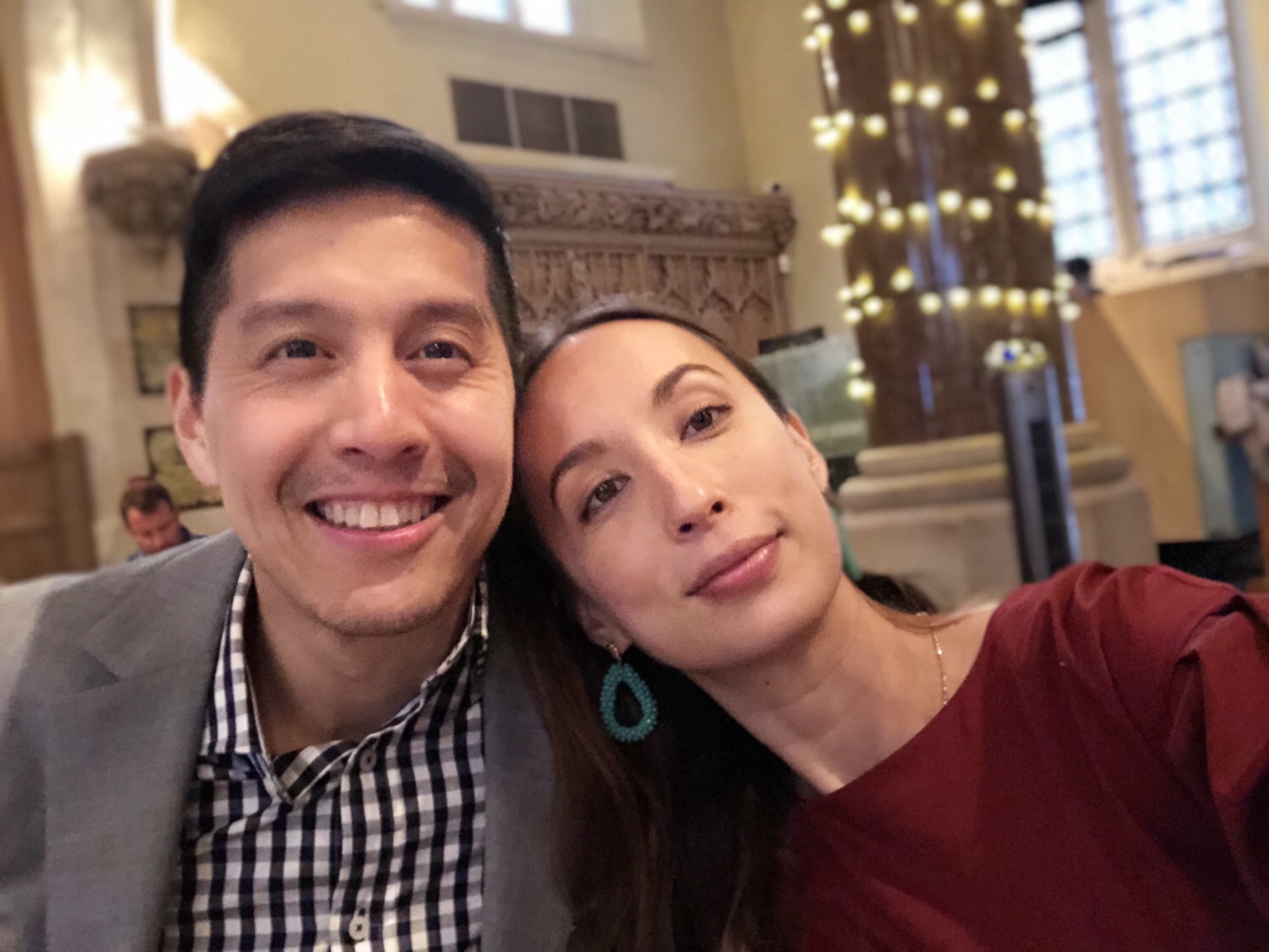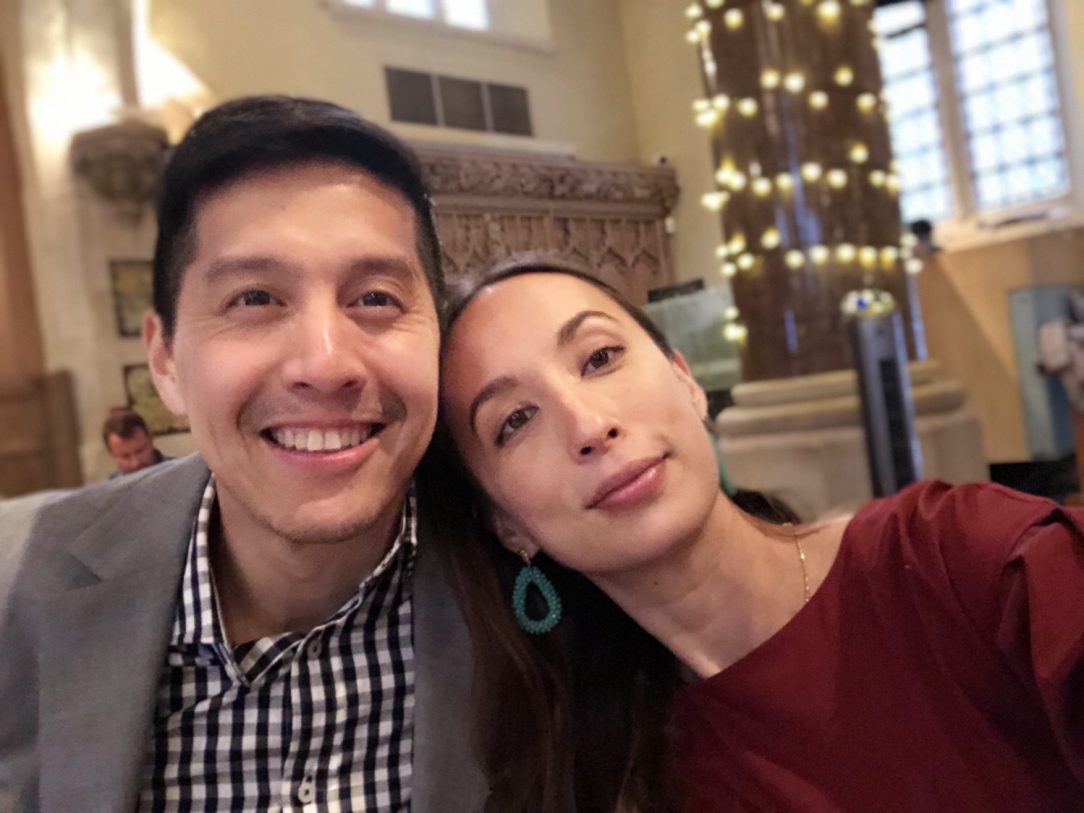 During the recently concluded RZIM Summer School in Oxford, I had the privilege of sitting through two sessions by counselor, speaker, and author, Judy Dabler, who began with this thought, “Conflict is not like wine or cheese, it doesn’t get better with time. It harms us emotionally, psychologically, physically, spiritually…”
During the recently concluded RZIM Summer School in Oxford, I had the privilege of sitting through two sessions by counselor, speaker, and author, Judy Dabler, who began with this thought, “Conflict is not like wine or cheese, it doesn’t get better with time. It harms us emotionally, psychologically, physically, spiritually…”
Therefore, it is important to move towards restoration. Yet, what is the process that people go through to get to the point of restoration, the goal of conflict resolution?
We see the steps outlined in the life of Joseph in Genesis 37, 39 – 50, which Judy Dabler calls the Four R’s of healing the relationship:
⁃ Repentance
⁃ Reconciliation
⁃ Restoration
⁃ Reinstatement
Let’s begin with repentance. This involves seeing our heart in the conflict and acknowledging it. Every party in a conflict has something to own. Attitudes of the heart are hard to discern in “good people,” but they are there and must be owned up to.
For example, Joseph was the victim in the story, but he was foolish in sharing his dreams with his brothers. He didn’t cause the sin of his brothers, but he did trigger what was already in his brothers, the jealousy and hatred.
Embittered to the point of irrationality, Joseph’s brothers threw him into a pit, sell him, and then fake his death to their father. For many years, Joseph suffers the consequences of his brothers’ choices. He is victimized many times over until God elevates him to second in command to Pharaoh.
At this juncture, there is widespread famine, and Joseph’s brothers come to him to buy grain. This is the first time Joseph sees his brothers again (sans Benjamin who remains at home with his father, Jacob.) We see how Joseph wrestles with his emotions and hides the turmoil of his own pain. He is aware that his brothers have come before him with a real need for grain, but he doesn’t trust them completely. While his identity remains unknown to them, he decides to put them to the test.
This isn’t always the best way to move towards restoration, but it is very often the process that hurt people go through. Before the offended risks being vulnerable, he or she will resort to testing, observing, and evaluating the people with whom he or she is in conflict with to “check” for repentance.
Edric and I are presently counseling a couple who is hurting, and there is a deep felt need from the offended spouse to see if there is a commitment to reconciliation. Many questions are asked with the hope of receiving genuine and honest confessions. Every move of the offending spouse is carefully analyzed to detect inconsistencies.
How does Joseph evaluate his brother’s trustworthiness? He accuses them of being spies, forcing them to leave Simeon behind until they can produce their youngest brother, Benjamin. Joseph also plants the silver they were supposed to pay back into their sacks to see if they will be honest about it.
What is Joseph looking for by resorting to this bizarre treatment of his brothers? Since Joseph’s brothers had sold him into slavery, he hoped to see that their own brother, Simeon, was more important to them than their own lives. He also wanted to test their honesty. Would they return the silver?
Joseph subjects his brothers to another series of tests when they finally bring Benjamin with them to ask for more grain. He had his silver cup placed in Benjamin’s sack, forcing the brothers to return to Egypt and beg for his mercy.
Here we see that the brothers genuinely cared for Benjamin, as they were willing to exchange their lives for him. Judah’s actions show the gospel. He couldn’t bear for them to return home to their father without Benjamin. It is our first glimpse of their sacrificial love, and Joseph finally sees their sincerity.
Authentic repentance ought to be accompanied by confession. Confession is to acknowledge what we have to come to see about ourselves. “Therefore, confess your sins to one another and pray for one another, that you may be healed…” (James 5:16)
About two years ago, Edric and I met with a couple that was dealing with infidelity issues. It was easier to help them work through what happened because the offending spouse was absolutely broken and wrecked by his sin. He didn’t hide behind pride or excuse his actions. His repentance was genuine. Dabler asserts that real confession is often accompanied by deep emotion, which reverses emotional withdrawal.
Dabler also emphasizes that reconciliation requires both parties in a conflict to confess, repent, and forgive. Without this, there can be no reconciliation.
“Therefore, confess your sins to one another and pray for one another, that you may be healed.”
(James 5:16)
In my own experiences with counseling hurting couples, it is a commitment to true forgiveness that makes both parties willing to own up to their mistakes, and to acknowledge them truthfully. If the emotional climate feels hostile, it’s difficult for the offender to be honest.
When there is that emotional divide during a conflict, what a person longs to hear is, “Come close to me.” So many instances in my own marriage, I have felt this need for Edric to pull me close to him and embrace me. It does wonders when we are at odds with one another, and especially after we have asked for forgiveness from one another.

The beauty of forgiveness is that it gives way to compassion and then kindness, which fall under reconciliation. Dabler identifies compassion as the capacity to relate to another person’s pain, and kindness is the undeniable expression of compassion that can be felt by the other. She goes on to explain that when an offended person cares more about the damaging effect of the sin on the sinner, rather than the damaging effect of the sin on himself or herself, compassion is released.
The reality is that when dealing with couples in conflict, it’s very difficult for the offended party to get to this point. It takes grace. It takes understanding that we are forgiven by God, that sin has equalized us all. None of us is more righteous than the other, and we must be committed to restoring one another to God first, because that’s where the real offense lies.
Joseph kisses his brothers and weeps over his brothers when he finally reveals his identity to them. He is honest about the wrongness of his brothers actions and the pain their actions caused him. He doesn’t minimize this. However, he defaults to a spiritual perspective, confident that God was and is at work.
We see reconciliation starting to take place in Joseph as he identifies himself as a brother again, as part of the family, by asking if his father is living. He reconnects with the family he withdrew from. He uses the word “MY” father. The consequences of conflict are beginning to be reversed.
Joseph then offers to take care of his brothers and their families, to save them from the famine. Rather than using his power abusively, he uses his power redemptively.
In conflict, the offended party often seems to have the “upper hand”, in the sense that the offender cannot force him or her to forgive, to trust, or to extend grace. Therefore, it becomes a unique opportunity to demonstrate what the gospel is. This is how Christ loved and loves us. We deserved nothing from him but he gave everything.
Dabler goes on to say, “The person who is offended is in the best position to loan trust to the offender. How is this possible? The more we know who God is, the more we can trust him for justice and peace. We have a bank account in grace that is so vast, there is no way to spend down the balance. How can we withhold grace to those who have offended us? We have to remember that we have been forgiven much.”
In the conflict between Joseph and his brothers, there was repentance (accompanied by confession and forgiveness), then reconciliation (marked by compassion and kindness), then restoration (the rebuilding of trust, respect, and closeness), and finally reinstatement.
Joseph affirms his brothers as brothers once again, promising them provision even after their father, Jacob, passes away, thus allaying their fears that he may still seek out revenge.
When Joseph’s brothers saw that their father was dead, they said, “It may be that Joseph will hate us and pay us back for all the evil that we did to him.” So they sent a message to Joseph, saying, “Your father gave this command before he died: ‘Say to Joseph, Please forgive the transgression of your brothers and their sin, because they did evil to you.'” And now, please forgive the transgression of the servants of the God of your father.” Joseph wept when they spoke to him. His brothers also came and fell down before him and said, “Behold, we are your servants.” But Joseph said to them, “Do not fear, for am I in the place of God? As for you, you meant evil against me, but God meant it for good, to bring it about that many people should be kept alive, as they are today. So do not fear; I will provide for you and your little ones.” Thus he comforted them and spoke kindly to them. (Genesis 50:15-21)
This is an amazing conclusion to the story of Joseph and his brothers, but just the beginning of God’s amazing plan for the Israelites. Joseph’s brothers humbled themselves, and Joseph humbled himself by acknowledging that it was God who ordained the circumstances of his life. Because Joseph was willing to care for his brothers as dearly beloved family, even after all their offenses against him and the history of hurt he endured, God used him to save the people of Israel. Eventually it was through Joseph’s brother, Judah, that the Messiah came to us.
Here’s what struck me as I listened to Judy Dabler: It is impossible to experience complete restoration unless we are reconciled to God first, and trust in who God is. Otherwise, our focus is very microcosmic and victim-centered — my pain, my hurt, and my right to be angry, to hold a grudge, to revenge. Joseph could have approached his circumstances the same way. However, he encountered God personally through all his trials, and he entrusted his life to Him. He gave up his right to take matters into his own hands, or to respond with vengeance.
Some persons in our lives who have offended us may never repent, confess, and ask for forgiveness. If our joy and peace is hinged on whether they will, then joy and peace will perpetually elude us. Yet we can choose to say, “Jesus, my life belongs to you. You are Lord and Savior. My future belongs to you. I feel the pain of my broken relationships, the offenses committed against me, and the hurt is real. But I also know that you understand what I am going through. My sin nailed you to the cross. You suffered for my sake so that I may be set free from the sin that is in this world, from my own brokenness. I will forgive as you have forgiven me, trusting that you will cause the wrongs to be made right in your perfect time. In the meantime, your grace and your love are enough, and the security of my eternal future with you gives me hope and rest that the best is yet to come.”
In doing so, we can move on as whole persons, not dependent on the repentance of others to experience inner healing because we are healed from the greatest brokenness of all — a broken relationship with God. If repentance and reconciliation do happen with people who have offended us, then what a wonderful bonus! But, it’s no longer a prerequisite to restoration of the soul.
Dabler concluded her talk with the lyrics from one of my favorite songs, “How Deep the Father’s Love” by Stuart Townend, which puts into perspective why our grace bank account ought to be inexhaustible, allowing us to experience freedom from our own sin and the sins of others against us…
How deep the Father’s love for us
How vast beyond all measure
That He should give His only Son
To make a wretch His treasure
How great the pain of searing loss
The Father turns His face away
As wounds which mar the Chosen One
Bring many sons to glory
Behold the man upon a cross
My sin upon His shoulders
Ashamed, I hear my mocking voice
Call out among the scoffers
It was my sin that held Him there
Until it was accomplished
His dying breath has brought me life
I know that it is finished
I will not boast in anything
No gifts, no power, no wisdom
But I will boast in Jesus Christ
His death and resurrection
Why should I gain from His reward?
I cannot give an answer
But this I know with all my heart
His wounds have paid my ransom
Why should I gain from His reward?
I cannot give an answer
But this I know with all my heart
His wounds have paid my ransom



Hi, Joy. Thank you so much for this post. This is a great reminder for me particularly this one:
“I will forgive as you have forgiven me, trusting that you will cause the wrongs to be made right in your perfect time.”
Praise God I am glad you were encouraged 🙂
This article has blessed me in so many ways. God bless you and yiur married life. Continue to a bleasing to other theough your blog.
Praise God! Thank you!
I’m grateful for this post. It resonates with what I am going through now. I have experienced
such deep brokenness that only God could restore me. And, He miraculously did.
Our God and His Word is more alive to me now. The taught me that the emptiness in my
heart could only be filled by Jesus.
Thank you for being His instrument to bless me in wonderful ways through your blog.
Praise God! Glad to hear about your journey with him!
Thank you so much for this Ms. Joy. Desparately needed to be reminded of this.